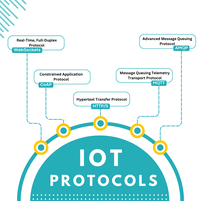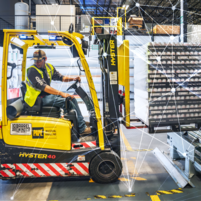Smart Cities in India

Imagine a city with cutting-edge smart infrastructure and many systems driven by the latest information technology, all combined into a cohesive whole. It is possible that the Smart Cities Mission, which aims to improve our cities' appearance, functionality, and quality of life, will help us achieve this objective. In 2015, the Indian government launched the Smart Cities Mission, which has already expanded to 109 cities. The mission's key goals are to enhance the quality of life and economic possibilities for the local population while also ensuring that the infrastructure is efficient and reliable. The most recent announcement was issued in June this year after four selection rounds. Ninety cities were selected in the first round of voting.
Exerting a positive influence on the housing market
The real estate market in urban areas is expected to benefit significantly from implementing smart cities, which are expected to enhance the quality of life for residents.
The Royal Institution of Chartered Surveyors (RICS) released a white paper stating that the real estate industry would get the bulk of the money spent on smart city programs. Rs 48,220 crore is all that will be invested in the capital of the first 20 cities' infrastructure. Over eighty-nine percent of this money will be spent on things like greener construction, more efficient transportation, better water and wastewater management, and more efficient energy generation and conservation.
The Smart Cities initiative is expected to have a wide range of effects on the real estate market, including the following:
The best possible infrastructure: As the economy of urban areas grows, more jobs will be created, and inhabitants' quality of life will increase.
The Smart Cities Mission's distribution of land and funding will significantly stimulate the development of additional dwellings at reasonable costs. A big objective called "Housing for All by 2022" aims to build 2 crore new homes in urban areas within five years. As more low-income housing units are built, fresh demand will be created, benefiting the housing market.
Forming relationships between the public and private sectors will assist in developing smart cities, which will be done via more cooperation. When it comes to raising the necessary finances and making sure that the services and utilities are effectively delivered, they will be an excellent asset to have. As a result of these initiatives, private companies and developers can combine their resources to create cooperative ventures inside the smart city ecosystem.
As a result of the increased infrastructure and connection promised by the Smart Cities initiative, the market for commercial real estate is expected to grow. Hotels, service apartments, and shopping malls will increase demand as smart cities expand. The rise of "smart cities" will exacerbate this need.
Developing a smart city's regional, social, and economic infrastructure is expected to substantially impact programmers' work. As the goal of constructing more than 100 smart cities becomes a reality, the GDP contribution of real estate is expected to rise to 10–12 percent by the year 2022.
Cities that have the highest potential for development
Some of India's most promising cities for economic and industrial development have been singled out by the country's government. The following are five cities that, because of planned infrastructure improvements and other potential economic drivers, may be good bets for "smart" real estate investments:
Bengaluru
After two prior efforts, the nation's information technology capital made it into place on this current list of Smart Cities. There has been a boom in the real estate market due to the development of information technology enterprises, but this growth has come at the price of infrastructure. Bangalore's Bruhat Bengaluru Mahanagara Palike (BBMP) aims to spend a total of 1700 billion rupees on upgrading the city's infrastructure as part of their effort to get things back on track.
Visakhapatnam
The city's high-quality infrastructure and rapidly increasing information technology industry make it an appealing destination for real estate investment. The pharmaceutical and information technology sectors have been the primary drivers of demand in and around the city. The port city's real estate market has been given a fresh lease of life by the recent separation of the state into two independent states, according to experts in the field.
Pune
Pune has emerged as a leading center for the information technology (IT) industry and the car industry as a direct result of the city's friendly climate, the wealth of local talent, and the presence of top-notch educational institutions in the city. Because of the completion of the Mumbai-Pune Expressway, the city of Mumbai has become a desirable site for investors from various parts of the country. When it comes to the real estate market, the fact that it is one of the most robust in the nation should not come as a complete surprise to anybody.
Chennai
In recent years, Chennai has transitioned from its long-standing role as a manufacturing center to that of India's second-largest software exporter, behind only Bengaluru. In addition, this location is home to some of the most well-known software companies in the world. Improving the motorways that connect these new centers is now the primary focus of the work that state authorities are devoting toward encouraging the development of new centers.
Ahmedabad
The city of Ahmedabad is becoming an increasingly important financial and economic center in India, which has increased the demand for real estate in the area. The textile, engineering, chemical, and automotive sectors are now the primary drivers of competition in the modern labor market. The enhancement of the city's reputation is a direct result of the growth in job prospects that has led to an increase in the number of skilled people relocating to the city. The value of real estate inside the city has already improved due to infrastructure initiatives such as GIFT city.
What's Ahead: The Road to Success
A smart city results from many diverse stakeholders pooling their resources and cooperating with one another to advance a wide range of projects via several different types of cooperation arrangements. There is no such thing as a smart city that develops on its own or even overnight; instead, cities need a government that is both visionary and courageous enough to make difficult choices, supported by municipal authorities and other urban local organizations. In a perfect world, rather than transforming already existing cities into smart cities, building new cities from the ground up would be better. On the other hand, the modernization of India's cities is of equal significance, despite the fact that this process will take a great deal of time.
Given that these cities are responsible for producing 63 percent of the country's gross domestic product, the Smart Cities Mission has a lot riding on its success. It is anticipated that urban areas will account for 70 percent of all new employment in the United States by 2030; hence, the time has come for our towns and cities to become "smarter."
Explore more
Need any help in IoT?
Need any help in IoT? An Atreyo expert identify the right solution for your needs.
If ready to talk to an Atreyo expert
Interested in IoT products? go to






